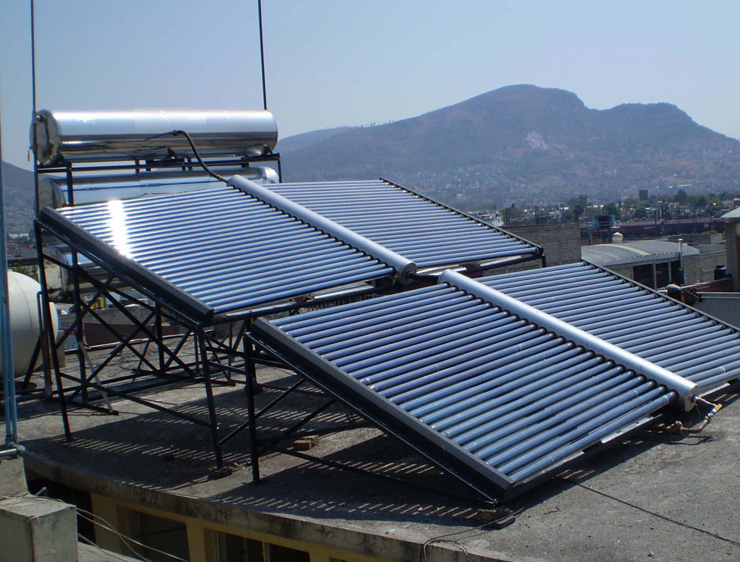
Image Source: Google
Solar-powered hot water systems are becoming increasingly popular as people look for energy-efficient and cost-effective ways to heat their water. If you are considering installing a solar hot water system for your home, there are a few key things you need to know to make an informed decision. In this article, we will guide you through the world of solar-powered hot water systems and provide you with the information you need to get started.
Types of Solar Hot Water Systems
There are two main types of solar hot water systems: active and passive. Each type has its own set of pros and cons, so it's important to understand the differences between them before making a decision.
Active Solar Hot Water Systems
- Active systems use pumps to circulate water or a heat transfer fluid through the system.
- They are more efficient than passive systems and can work well in all climates.
- There are two types of active systems: direct circulation systems and indirect circulation systems.
- Direct circulation systems are more efficient but can only be used in areas where temperatures rarely fall below freezing.
- Indirect circulation systems are more versatile and can be used in colder climates.
Passive Solar Hot Water Systems
- Passive systems rely on gravity and natural convection to circulate water through the system.
- They are generally less expensive and have lower maintenance costs than active systems.
- Passive systems are best suited for areas with mild climates and good solar exposure.
- There are two types of passive systems: integral collector-storage systems and thermosyphon systems.
- Integral collector-storage systems are more suitable for areas with freezing temperatures, while thermosyphon systems work best in warmer climates.
Factors to Consider When Choosing a Solar Hot Water System
When choosing a solar hot water system for your home, there are several factors to take into consideration to ensure you select the right system for your needs.
Climate
- The climate of your location will impact the type of system that is most suitable for your home. Active systems tend to perform better in colder climates, while passive systems work well in warmer climates.
Solar Exposure
- The amount of sunlight your home receives will also affect the efficiency of your solar hot water system. Make sure your roof has good solar exposure to maximize the system's performance.
Water Usage
- Consider your household's water usage when selecting a solar hot water system. Larger households may require a system with a larger storage capacity to meet their hot water needs.
Cost
- Compare the upfront cost and potential savings of different solar hot water systems to determine the most cost-effective option for your budget.
Benefits of Solar Hot Water Systems
There are several benefits to installing a solar hot water system in your home, including:
Energy Efficiency
- Solar hot water systems are highly energy-efficient, reducing your reliance on traditional energy sources and lowering your utility bills.
Environmentally Friendly
- Using solar energy to heat your water reduces your carbon footprint and helps combat climate change.
Cost Savings
- While the initial cost of installing a solar hot water system may be higher than a conventional system, you can save money in the long run through lower energy bills.
Maintenance and Care
To ensure your solar hot water system continues to function efficiently, regular maintenance is essential. Here are a few tips to help you care for your system:
Inspection
- Regularly inspect your system for any signs of damage or leaks.
Cleaning
- Keep the solar collectors clean and free of debris to maximize sunlight absorption.
Professional Servicing
- Schedule annual servicing by a qualified technician to keep your system in optimal condition.
Conclusion
Solar-powered hot water systems are a sustainable and cost-effective way to heat water for your home. By understanding the different types of systems available, considering key factors when choosing a system, and maintaining your system properly, you can enjoy the benefits of solar hot water while reducing your environmental impact and saving money in the long run.